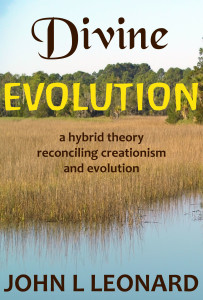http://relaxapartmanitara.com/24-7-payday-loans-2/individual-automobiles-money-for-below-average/ 
In my opinion, there is only so much one can learn from simply reading the Bible alone. To get real value out of the Bible, you have to participate in a Bible study.
Otherwise, it’s too easy to cheat. For example, for years I simply ignored verses or whole chapters in the Bible that didn’t make sense to me. I didn’t want to think about a God who wanted blood rituals or human sacrifices.
In fact, I tended to avoid the Old Testament, preferring the personification of God as being the loving, kind, and forgiving Jesus, not the apparently cruel and vacillating Yahweh of the Old Testament. Once upon a time, I was kicked out of one Bible study group after saying that Yahweh and Jesus almost seemed to be two different Gods.
But later, in a different, much smaller group that studied the book of Genesis painstakingly line by line, I was forced to confront a chapter than had always bothered me. Bible study inspired me to turn the story into a chapter in my first published book.
In Divine Evolution there is a chapter called “Misunderstanding God”, which begins by quoting the first verse of Bob Dylan’s masterpiece Highway 61 Revisited, which reinterprets the story from Genesis 22:
Ah, God said to Abraham, Kill me a son Abe say "Man, you must be puttin' me on." God say, "No." Abe say, "What?" God say, "You can do what you want, Abe, but The next time you see me comin' you'd better run. Well Abe say, "Where you want this killin' done?" God says, "Out on Highway 61."
The song gives Dylan’s colorful interpretation of the story of Abraham and Isaac — but the central fact remains unchanged. It was a great honor that the future Nobel Prize winner in Literature would so graciously grant me permission to quote him in my book for the nominal fee of $100 — well worth the price, in my opinion. Mick Jagger and Keith Richard charged me $5 more to quote a verse from one of their songs, and I won’t complain about that, either.
Loosely translated, the song describes what Genesis 22 says. No one can deny the obvious, which is that God ordered Abraham to go to the land of Moriah and offer his only son Isaac, as a human sacrifice. Now, why would Yahweh, assuming He exists and is a benevolent creator, make such a deplorable demand?
As literally told, the story seems horrific. Yahweh appears to be capricious and unimaginably cruel. And Abraham acts somewhat doltish. Why doesn’t Abraham protest, or even question whether or not God really wants Isaac to be killed and burned as an offering?
Keep in mind that later, in the book of Judges, Gideon asks for multiple signs with dew and fleece to confirm that he’s actually received God’s command. But with far more at stake Abraham is told to kill his son in a murder ritual, and he gets up early the next morning, without a word of protest, determined to follow those incomprehensible instructions from Yahweh without hesitation.
Why? It seems that at least these five possibilities exist, and maybe more.
- The story is false. God, Abraham and Isaac could be fictional characters. We may safely assume that the incident never occurred.
- The story isn’t meant to be read literally, but is allegorical.
- The story is true, but nonsensical. God is both creator and destroyer.
- The story is (sort of) true and accurate. Abraham was delusional, and had murderous intent toward his own son. Only through divine intervention was a tragedy averted.
- The story is true, accurate, and extraordinarily concise. Only by reading previous chapters, and making a few logical assumptions, can we have the story make sense and be true.
Atheists and secular readers usually gravitate toward the first alternative as the most plausible and consider the last option as least likely.
Option #1 is the simplest, and therefore the easiest explanation to believe on face value. Did the author believe the story was true or know the story was false because he was making it up? As the published author of three novels as well as three nonfiction books, I can attest to the fact that writing nonfiction is much easier. Research is not hard. Making up a plausible story from one’s imagination is much more difficult. The third and fourth options are both problematic because they acknowledge the existence of a creator, but offer no explanatory value. Neither the story itself nor the subject make any sense.
And Christians ought to be troubled by all five of these options, shouldn’t they?
Not in my opinion. According to my theory (that originated in Bible study) the fifth and final option is the reasonable answer, and therefore is probably correct.
Of course that would mean the story is essentially true and accurate, but extremely concise because the author doesn’t want to say things that paint Abraham, the father of Israel. in a negative light.
The key to this interpretation lies in what isn’t there — any sort of justification or detailed explanation of why God would test Abraham this way.
After all, isn’t this the same Yahweh who abhors the worshipers of Baal for their child sacrifices? Is it safe to assume Yahweh only loathes child sacrifices to other gods? Interestingly, the Bible prefaces its description of the incident found in Genesis Chapter 22 with these words: “ Puyallup Some time later God tested Abraham.”
Some time later than what? Herein lies the beauty of Bible study, chapter by chapter, line by line.
Read the last section of Genesis 21. It tells the seemingly banal story of a treaty made between Abraham and Abimelech the Philistine, at the well called Beersheba. The account includes one rather odd detail. Abraham accuses some of Abimelech’s people of stealing a well he claims to have dug, and demands return of the well as part of the treaty. Abimelech denies any knowledge of the issue. Then for no apparent reason, to placate Abimilech and sweeten the deal (while swearing that he was being truthful) Abraham sets aside seven ewe lambs to give Abimilech as part of the deal.
Did Abraham rightfully own the well? If so, why would he offer to pay for a well that he already owned?
It’s also very interesting to note what the author of Genesis 21 says about Abimilech’s reaction to the last minute inclusion of the well into the treaty — he was afraid of Abraham’s God, so he didn’t argue the facts. With the application of deductive reasoning, it seems that Abraham may not have only been the patriarch of the Hebrew tribes, he may have also been the father of tough negotiations and driving the hard bargain. Genesis 21:33 doesn’t elaborate. It simply reads, “Abraham planted a tamarisk tree in Beersheba, and there he called upon the name of the LORD, the eternal God.”
A plethora of questions spring into mind, such as….why were these two stories included in the Bible? What is the significance of the treaty with Abimelech? Why mention the added detail of the disputed well? Could this be the reason God decided to test Abraham?
And what the heck is a tamarisk tree?

Tamarisk tree, but not Abraham
My theory, which is sheer speculation based not on what’s in the Bible, but what isn’t there, nevertheless seems to provide the only rational explanation that might tie these two accounts together and “justify” the near sacrifice of Isaac.
If we ever do agree that my theory to explain the enigma of Abraham and Isaac is reasonable, there will be plenty of other stories need that need to be studied in order to gain some measure of understanding. The Bible is a mysterious book that describes a mysterious creator God. It is an indispensable tool in our search for truth, and answer to the existential questions.
Why were we created? Is there a reason we exist? Does humanity serve some unknown purpose?
Inquiring minds want to know…

Speak Your Mind